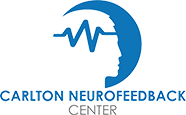
Autism Patients See Better Behavior and Cognitive Abilities
How Do Autistic Brains Differ?
Research shows that neuron activity in the brain differs in individuals with autism from those with normal brain development. They have more connections in some areas, and less in other areas, causing imbalances. In the assessments we do, the brainwave imbalances are measured, giving us the information we need to create a training program to improve brain function at the core level.
How Can Neurofeedback Training Help A Person with Autism?
At the Carlton Neurofeedback Center, we train children with autism to better control their brainwave patterns using audio and visual feedback. During a regular training session, your child’s brain waves are detected through sensors placed on their scalp. While their brain`s output is being measured, the child is relaxing, watching a movie or video that holds their interest.
The neurofeedback measurements allow the program to “feedback” to their brain in the form of changed audio and visual inputs. (If you were in the room with them, which is typical, you would see the movie go in and out of focus in response to the measurements of their brainwave output.)
Like Learning How To Ride A Bike
Remember how it was when you first tried to ride a bike? Or, if not that, how to swim, or maybe play an instrument? At first, you were most likely not very good at it. However, over time, with practice and instruction from your coach or parent, you gradually mastered the new skill. This method of learning is known as “operant conditioning”. It`s a fully natural process that we use every day to learn how to do anything new.
That`s precisely how neurofeedback training works. – No side effects, and over time their brain learns to “Stay Balanced” on its own. – Leading to long-term improvements in communication, memory, focus, concentration, and many other areas.
What outcomes can I expect from my child as a result of neurofeedback training?
Parents typically tell us that their children become calmer, are better able to manage their emotions, and are no longer so easily overwhelmed. On average, they report a 26% improvement in ATEC rated autism symptoms. We repeatedly hear how treatment improves these children’s social interactions, communication skills, schoolwork, anxiety, overall behavior, and even sleep.
One Patient`s Experience
“Our experience with Neurofeedback for my son with autism and ADHD has been extremely positive. We have noticed that school seems easier, he is more organized, and his emotional regulation has drastically improved. We couldn’t be happier with the results!”
Alysia B.
Let Us Help
We have seen neurofeedback training help children improve their cognitive function and other symptoms of their autism. Contact us today to set up a free, no-risk evaluation to learn if this therapy might be effective for your child.
You can also download Dr. Carlton’s Ebook or click here to find out why patients choose our clinic.



